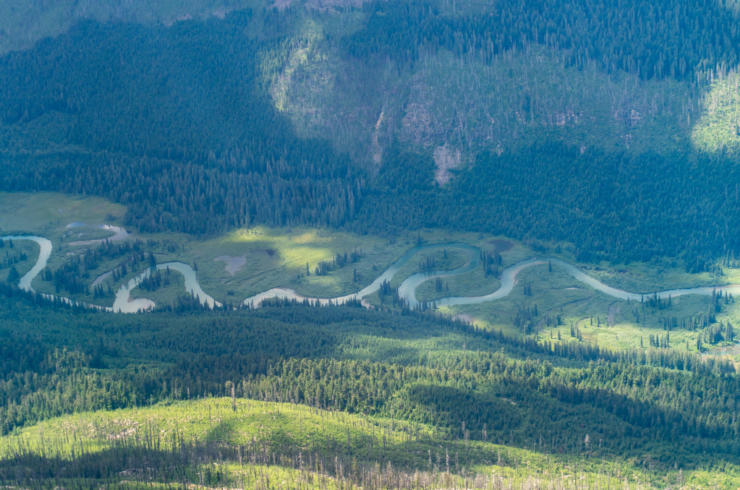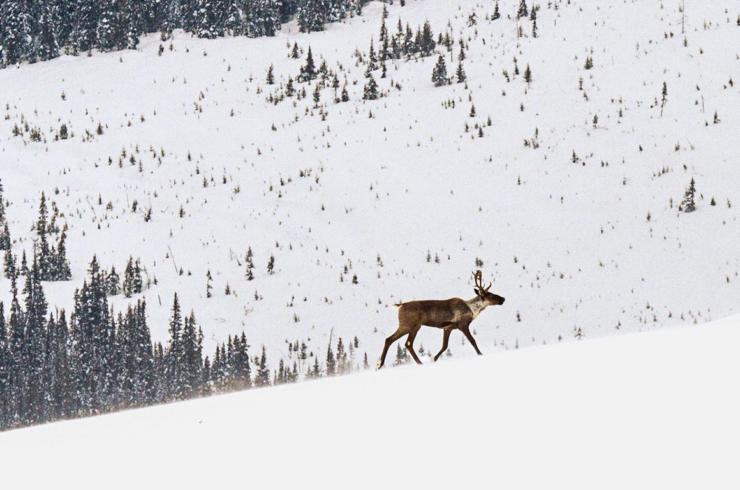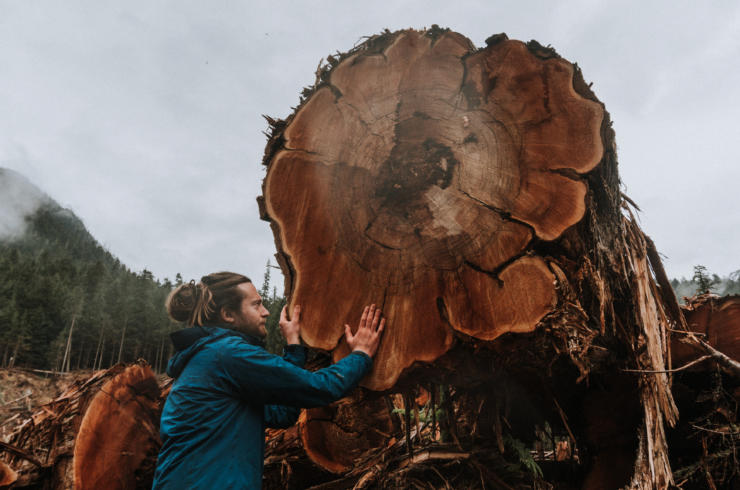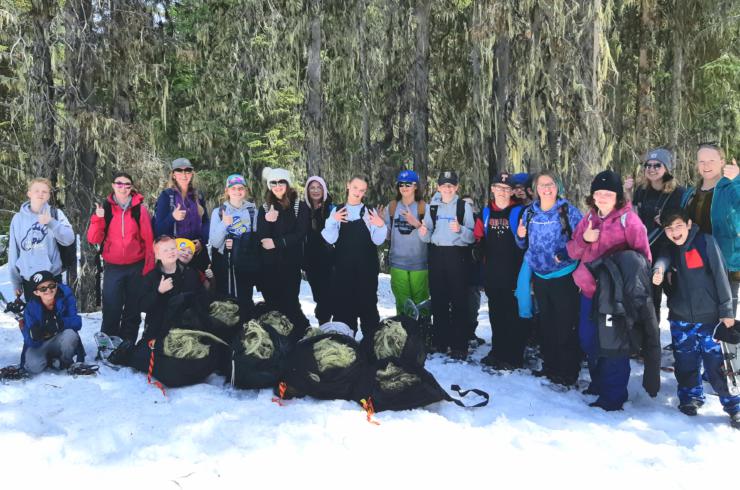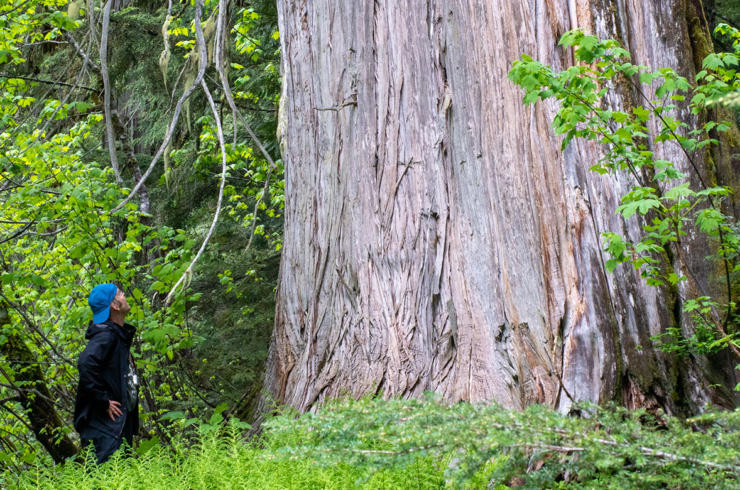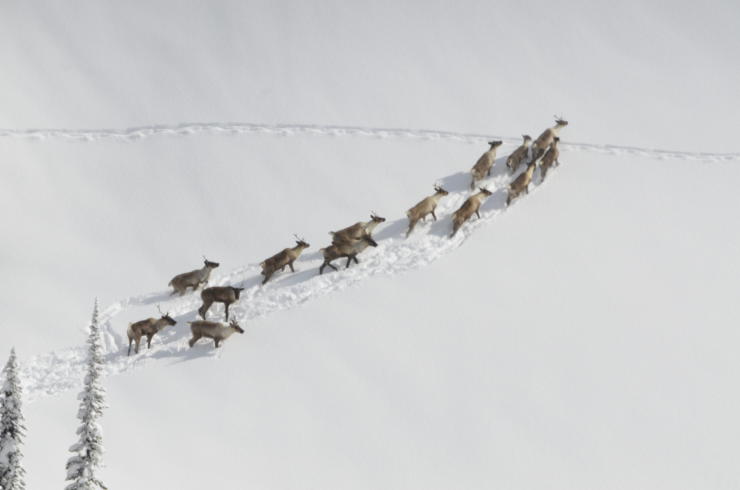The mountain caribou recovery plan(link is external), legislated in 2007, protects more than 2.2 million hectares (5.4 million acres or 95% of high-suitability winter habitat) from logging and associated road building. That’s an area twice as large as Wells Grey Park. The plan also prohibits motorized recreation across 1.5 million hectares (3.7 million acres) of caribou habitat.
But mountain caribou habitat has been so fragmented by industrial activities and development that it has dramatically changed the ecology in these “caribou forests” also known as the Inland Rainforest especially predator/prey relationships. So despite the scope of the recovery plan, caribou scientists say that some herds will not be self-sustaining in the short term – meaning they will need animal transplants from healthier herds and/or predator management to maintain them.
Related to such landscape-level changes the plan is short on measures to protect “matrix” or linkage zone habitats. Linkage zones allow caribou herds to move through low elevation forests while avoiding predators and for herds to intermingle and avoid genetic problems that could lead to further declines.
“The announced plan does not aim for full recovery across the complete range of mountain caribou. However, it does represent conscious, transparent choices based on the best available information. If fully implemented, I believe we will see significant recovery across most of the range of mountain caribou over the next few decades.” Trevor Kinley, Mountain Caribou Science Team
Progress on recovery plan implementation has been monitored by the Progress Board which is made up of representatives of forest industry, motorized recreation, hunting groups and conservation groups. (link to PB reports)
The recovery plan is a huge win for endangered mountain caribou and their globally unique inland rainforest habitat. But ultimately it’s the public who will benefit from the habitat protections that safeguard hundreds of plant and animal species protect air and water and store millions of tons of carbon.
Government coordinators and the Mountain Caribou Project are working hard to ensure that the recovery plan is effective and can include adaptive measures consistent with new information, changing habitat conditions or the lack of recovery progress.
Five years into the plan it appears doubtful that the initial goals of restoring mountain caribou numbers to pre-1995 levels of approximately 2,600 animals will be achieved on time. For unknown reasons and despite the recovery plan being implemented consistent with commitments, most herds continue to decline. However, the South Purcells herd increased by five animals for the first time in more than a decade not counting transplanted animals.



